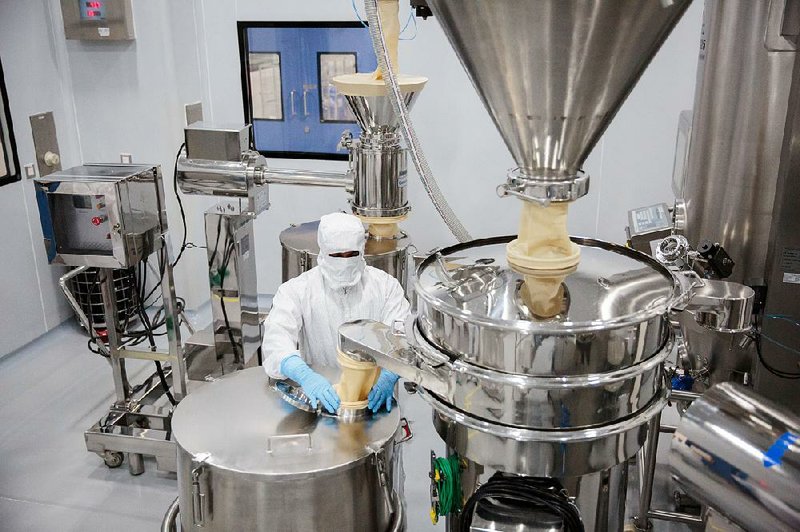Among the coconut plantations and beaches of South India, a factory the size of 35 football fields is preparing to churn out billions of generic pills for HIV patients and flood the U.S. market with the low-cost copycat medicines.
U.S. patents on key components for some important HIV therapies are poised to expire starting in December and Laurus Labs -- the Hyderabad, India-based company which owns the facility -- is gearing up to cash in.
Laurus is one of the world's biggest suppliers of ingredients used in anti-retrovirals, thanks to novel chemistry that delivers cheaper production costs than anyone else. Now, its chief executive officer, Satyanarayana Chava, wants to use the same strategy selling his own finished drugs in the U.S. and Europe. He predicts some generics that Laurus produces will eventually sell for 90 percent less than branded HIV drugs in the U.S., slashing expenditures for a disease that's among the costliest for many insurers.
"The savings for U.S. payers will be so huge when these generic combination drugs are available in the U.S.," he said at the factory outside the Southern Indian city of Visakhapatnam. Payers will save "billions of dollars," he said.
The patent expiries are starting this month when Bristol-Myers Squibb Co.'s Sustiva loses protection. Gilead Sciences's Viread follows next month. Both companies didn't respond to requests for comment.
For generic manufacturers such as Laurus, the U.S. market is alluring. With 1.1 million people infected with HIV in the U.S., and many of them living longer thanks to treatment, HIV drugs have become an $18.8 billion business for the pharmaceutical industry, according to data provider IQVIA.
Part of that spending is because of the high cost of the medicines. For instance, a combination of Viread, Sustiva and a third drug sold in pill form under the brand name of Atripla has an average wholesale price of almost $37,000 per person annually, according to data from the U.S. Department of Health and Human Services.
But in the developing world the same combination can cost as little as $100 per person annually, after years of brutal competition between generic manufacturers drove prices down, according to Medecins Sans Frontieres. Though Laurus doesn't yet make the actual pills those patients take, it's become a dominant supplier of the key ingredients that make them work.
The best way to fight HIV is with a combination of different drugs, and because Viread and Sustiva form key parts of some of the most effective combinations, the inclusion of generic versions of these chemicals could bring down the cost of the whole treatment. One analysis cited by the Department of Health found that replacing a three-medicine, branded combination with multiple pills, including a generic version of Sustiva, could save the U.S. $900 million its first year.
In the U.S., Laurus will be going up against much larger companies like Teva Pharmaceutical Industries -- the world's biggest generic drug company -- which will beat it to market on generic Viread and so be the first to offer lower prices and lock down customers. Other generic companies, both from India and elsewhere, many of whom are customers of Laurus, are expected to enter the market too.
Meanwhile, the companies that hold the original patents, like Foster City, Calif.-based Gilead, have also been successful at switching patients to their newer therapies to limit the impact of generic competition on the old ones, according to Bloomberg Intelligence analyst Asthika Goonewardene. He doesn't predict a big impact from generic competition to the $2.6 billion Gilead gets from HIV drugs.
Cost savings that were an advantage in the developing world, may also prove less useful in a less price sensitive market like the U.S. Between government programs providing treatment for the uninsured, and drug company funded ones helping the insured with their co-pays, HIV patients in the U.S. are often sheltered from the full cost of their medicines.
So patients may have little incentive to switch to cheaper alternatives, said Tim Horn, the New York-based deputy executive director of Treatment Action Group, an AIDS policy think tank. Newer drugs offer medical advantages to the ones going off patent, including fewer side effects, and the switch from one daily brand name pill to a mix of two or three may feel like a step back for many, he said.
Still, Horn says private and public insurers, who pay the greater part of the full sticker price and then spread those costs through the system in the form of higher premiums and health-care costs, are likely to push for generics.
Business on 12/05/2017
